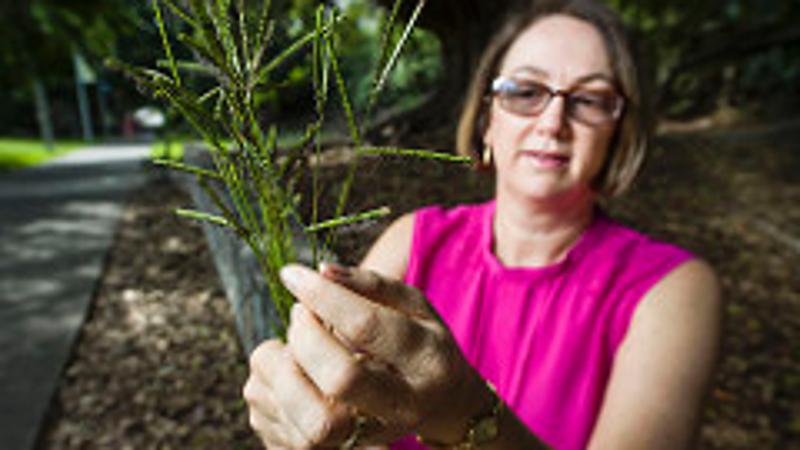
Thunderstorms are part and parcel of Queensland’s spring and summer. In parts of Australia, thunderstorms can be deadly for people with hay fever and asthma, says QUT Faculty of Health expert Professor Janet Davies.
“Thunderstorms combined with extreme levels of grass pollen triggered asthma in thousands of people across Melbourne last November,” Professor Davies said.
“On November 21 there were 10 deaths, more than 30 intensive care admissions from asthma and 4000 emergency department presentations due to breathing difficulty after a severe thunderstorm.
“Many people who had hay fever but who had never had asthma before experienced asthma symptoms such as breathlessness.
“We believe the high concentration of airborne grass pollen grains broke into much smaller particles due to the rain and storm conditions, and were much more easily breathed in.
“When these minute pollen allergen particles entered the airways of people prone to grass pollen allergy, it triggered asthma symptoms.”
Professor Davies said the weather conditions and high pollen count could be found in other temperate climate areas including South-east Queensland and New South Wales.
“Most hay fever sufferers in temperate parts of Australia are sensitive to ryegrass pollen, common in temperate climate zones which have high late winter and early spring rainfall that may lead to increased grass growth and flowering.
Professor Davies said people with hay fever and asthma should be vigilant and seek information on the pollen count from the AusPollen pollen count services so they could be prepared.
“Preventative measures include taking antihistamines and nasal corticosteroids to control hay fever, staying indoors on high pollen days, and keeping home and car windows closed,” she said.
“People who experience bad hay fever or a cough, tight chest or breathing difficulties during the pollen season should seek medical advice because they may have undiagnosed asthma.
“People with asthma should ensure they have an up-to-date asthma action plan and are ready to respond should they experience breathing difficulties this pollen season.”
Media contact: Niki Widdowson, QUT Media, 07 3138 2999 or n.widdowson@qut.edu.au
After hours: Rose Trapnell, 0407 585 901 or media@qut.edu.au.




